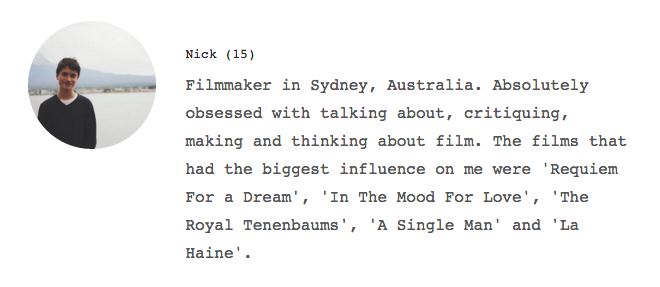After sitting on it overnight, I have finally found words to describe Trey Edward-Shult’s new post- horror film, It Comes At Night, after previously only being able to articulate the words: “bruh” and “dude”. I walked into this film with absolutely neutral expectations, after hearing the controversy about the film’s misleading marketing and promotional material. I stayed away from all trailers to this film and that is absolutely the way that you need to go into this film: No synopsises and no trailers – just a blank slate.
Trey’s first film, Krisha, was a powerful character study about a woman struggling with addiction, and really exhibited his filmmaking potential. He made that film for $30,000 in eight days, casting mostly friends and family in the supporting roles. This new film is on a much larger budget and it’s fascinating to see what Trey does with those resources. Despite walking into this film with absolutely no expectations, I still knew that the film was going to be expertly crafted and original, if distributed by A24.
All I will say about the plot of It Comes At Night, is that it’s about a family surviving some sort of zombie apocalypse, and the tension and anxiety that comes with protecting those that you love. The misleading advertising campaign paints the film as a monster-horror film, which is why many audiences have been disappointed to find that this is instead a subtle, quiet, suspense-driven piece about paranoia and hopelessness. It’s a family-drama, set against a typically horror film setting, and is the best film I’ve seen so far this year.
Similar to fellow A24 films, The Witch and Under The Skin, this film’s real ‘horror’ comes from it’s presentation, rather than solely its subject matter. This is some of the best horror filmmaking I’ve seen since The Witch and is both subtle and intellectual, yet chilling and raw. The sheer tone was enough to make me tense from beginning to end. However, despite the horror elements in the movie, this is still a very human film, with very naturalistic dialogue and rich characters. On top of that, this is by far the most realistic depiction of a zombie apocalypse I’ve ever seen, even more so than 28 Days Later.
The cinematography is absolutely gorgeous, with a very woody, tactile quality and shot on 35mm film. Trey employs similar filmmaking techniques that he used in Krisha, such as long, slow zooms and ominous steadicam movements down hallways – very possibly inspired by Kubrick’s The Shining. The eerily smooth camera movement along the interiors of the house, paired with the beautiful, harrowing score creates a tone that I don’t believe I have experienced in a film before. The editing is pitch perfect and only concentrates the tension in the film.
Another interesting part of the film is the change in aspect ratio (the black bars on the top and bottom of the screen). During the many nightmare sequences in the film, the screen would become tighter (shifting from 2.35:1 to 2.55:1), and then draw back out as the film transitioned back into reality. However (without spoiling anything), through the final sequences of the film, Shult’s chooses the leave the aspect ratio at it’s tightest, as reality becomes a nightmare. This tactic of changing aspect ratio was also used in Xavier Dolan’s Tom At The Farm and also Shult’s previous film Krisha.
All of the performances in the film were brilliant, especially Joel Edgerton as the father, who brings so much character and depth through only a moderate amount of dialogue. Even the child performance was fine, which is usually the downfall of many films. All of the actors had great chemistry and worked off each other in a very natural way.
During our discussion after the film, my girlfriend, who is a huge horror fan, said that (paraphrasing) to enjoy this film, you have to have an open mind and have to be able to piece things together yourself, since this film does not spoon-feed the audience. I cannot help but read other critic reviews and cringe, as they try to critique the film on its ambiguity and slow pacing – completely ignoring the fact that it was completely intentional. It’s ironic that the same people who are always talking about horror as a bored, dying genre, are trying to criticise one of the most original and convention-smashing horror films in recent years. They ignore the fact that this is not just a dreadful, blandly shot, Blumhouse-distributed film, and is instead an arthouse interpretation of a zombie outbreak, and is a refreshing take on the horror genre. Why would you criticise a horror film that for once, actually makes you think?
This is a film that I have recommended to almost everyone. I think that we should support original voices in film, and pay to see films like It Comes At Night, otherwise our cinemas will just be full of the same diluted and uninspired excrement that we’re used to seeing. It Comes At Night may not still be at the top of my list by the end of the year, but I can almost guarantee that it will remain the best horror film of the year. Also, not to spoil anything, but this film has one of my favourite final shots of all time.
No trailers. No synopsis. Blank slate. See it.

